
It was a toss-up between slashing interest rates to aid economic growth and leaving them as they were to quell inflation worries. The six-member, Shaktikanta Das-led monetary policy committee (MPC) of the Reserve Bank of India (RBI) made a 4-2 decision against a rate cut. It meant the repo rate - the rate at which commercial banks borrow from the RBI―would remain at 6.5 per cent. The central bank, Das said in what was his final press meet as RBI governor following the MPC meetings that concluded on December 6, would, true to its charter, "remain unambiguously focused on a durable alignment of inflation with the target, while supporting growth". With Das's steady hand off the wheel on December 10, Sanjay Malhotra, an IAS officer of the 1990 batch and revenue secretary in the Union finance ministry, has been appointed as the new RBI governor.
Das, who as governor had a veto power in the MPC, chose not to deviate from the conservatism he has maintained ever since high inflation began to hurt spending two years ago. He ardently believed lowering inflation by keeping interest rates high put more money in people's hands, which, in turn, spurred demand and growth.
It was certainly not what Union ministers Piyush Goyal and Nirmala Sitharaman wanted to hear, as both had expressed in public what many read as the Narendra Modi government's wish - bringing down interest rates to support growth.
What the RBI has done, though, is cut the cash reserve ratio (CRR)-the percentage of cash a commercial bank is required to keep in reserve with the central bank as against its total deposits - by 50 basis points to the pre-pandemic 4 per cent. This will release liquidity to the tune of Rs 1.16 lakh crore into the banking system, augmenting the banks' capacity to lend to industrial and retail customers.
This story is from the {{IssueName}} edition of {{MagazineName}}.
Start your 7-day Magzter GOLD free trial to access thousands of curated premium stories, and 9,000+ magazines and newspapers.
Already a subscriber ? Sign In
This story is from the {{IssueName}} edition of {{MagazineName}}.
Start your 7-day Magzter GOLD free trial to access thousands of curated premium stories, and 9,000+ magazines and newspapers.
Already a subscriber? Sign In
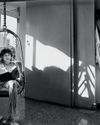
He gave the beat to the world
He would pick up the rhythms of each experience of mobility and weave them into his taals. Thus it was that he reflected joy and laughter in rhythmic cycles...such was the magic of Zakir's fingersText and photographs by Raghu Rai

KERALA TOURISM CAMPAIGN, 1989 - TICKETS TO PARADISE
All it took was a catchy tagline-'God's Own Country'-for the world to discover Kerala's wealth of natural beauty. It remains among the best tourism ad campaigns, earning the state a place among top 10 international destinations

SPIRITUALITY - THE GURUS OF COOL
Among the cult Indian gurus, no one had a bigger hold on western minds than 'Osho' Rajneesh. He's also perhaps the role model for the enterprise-building gurus of today
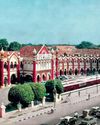
RETAIL SHOPPING - THE MALL MANIA
Shopping malls, a 1990s innovation in India, changed the way the Indian middle class shops. Their success now lies in being 'shoppertainment' destinations, offering something for everyone

CULINARY RENAISSANCE, 1978 - TANDOORI NIGHTS
ITC's Bukhara and Dum Pukht turned the world to tandoori cuisine and had an enormous impact on the F&B industry. Decades on, they are still a pit-stop for celebrities and heads of state visiting Delhi
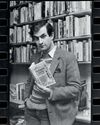
INDIAN WRITING IN ENGLISH - REVENGE OF THE NATIVE
Rushdie lit the way but Indian writing in English has taken a life of its own in the past few decades, with translated Indian fiction most recently having its moment in the sun
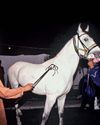
INDIAN ART - A BRUSH WITH GOLD DUST
The 1990s economic liberalisation came as oxygen, lighting up the Indian art scene. Today, artworks by established masters routinely go for astronomical amounts
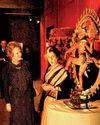
FESTIVAL OF INDIA, 1982 - CULTURE CAPITAL
The Festival of India grew into a symbol of our 'soft power', introducing our art and aesthetics to a global audience while also helping rebrand our domestic products

THE INDIPOP TREND - DISCO GOES DESI
For ages, the film song ruled. Nothing else was audible. Then came Nazia, charioteered by Biddu, and Indian ears went into a pleasant madness. Literally, Disco Deewane. A whole genre was born
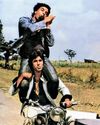
SHOLAY 1975 - THE BIRTH OF THE FANDEMIC
India had seen hits before. But Sholay seared into its collective psyche like a badland bullet. The effect was on a scale never seen before- one film creating a new mass folk culture. And a trail of monster blockbusters that still continues